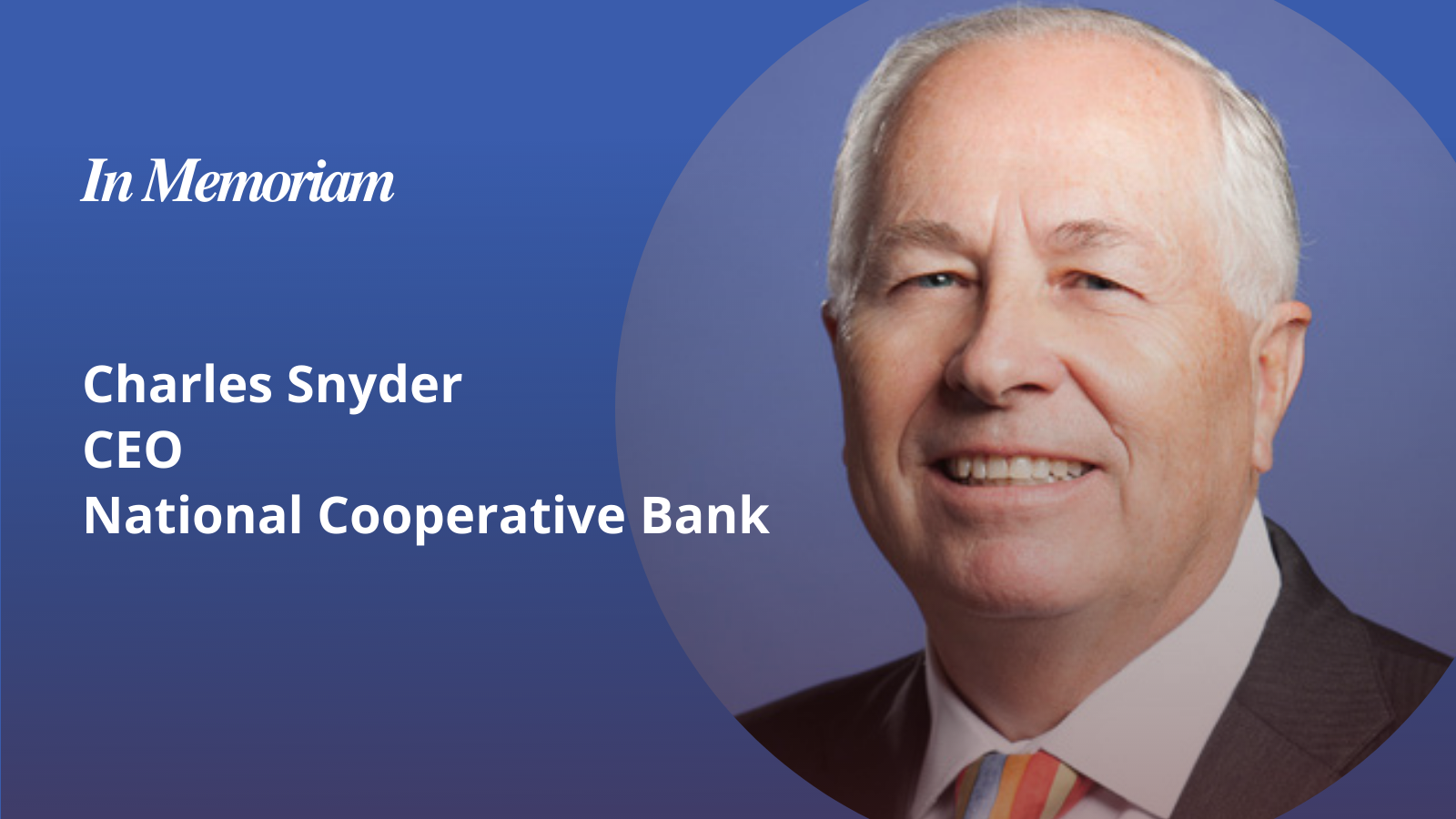
In Memoriam: Capital Impact Mourns the Loss of Charles Snyder of National Cooperative Bank
On behalf of the entire team at Capital Impact Partners and CDC Small Business Finance, I want to express my deepest sorrow at the passing of Chuck Snyder.

On behalf of the entire team at Capital Impact Partners and CDC Small Business Finance, I want to express my deepest sorrow at the passing of Chuck Snyder.
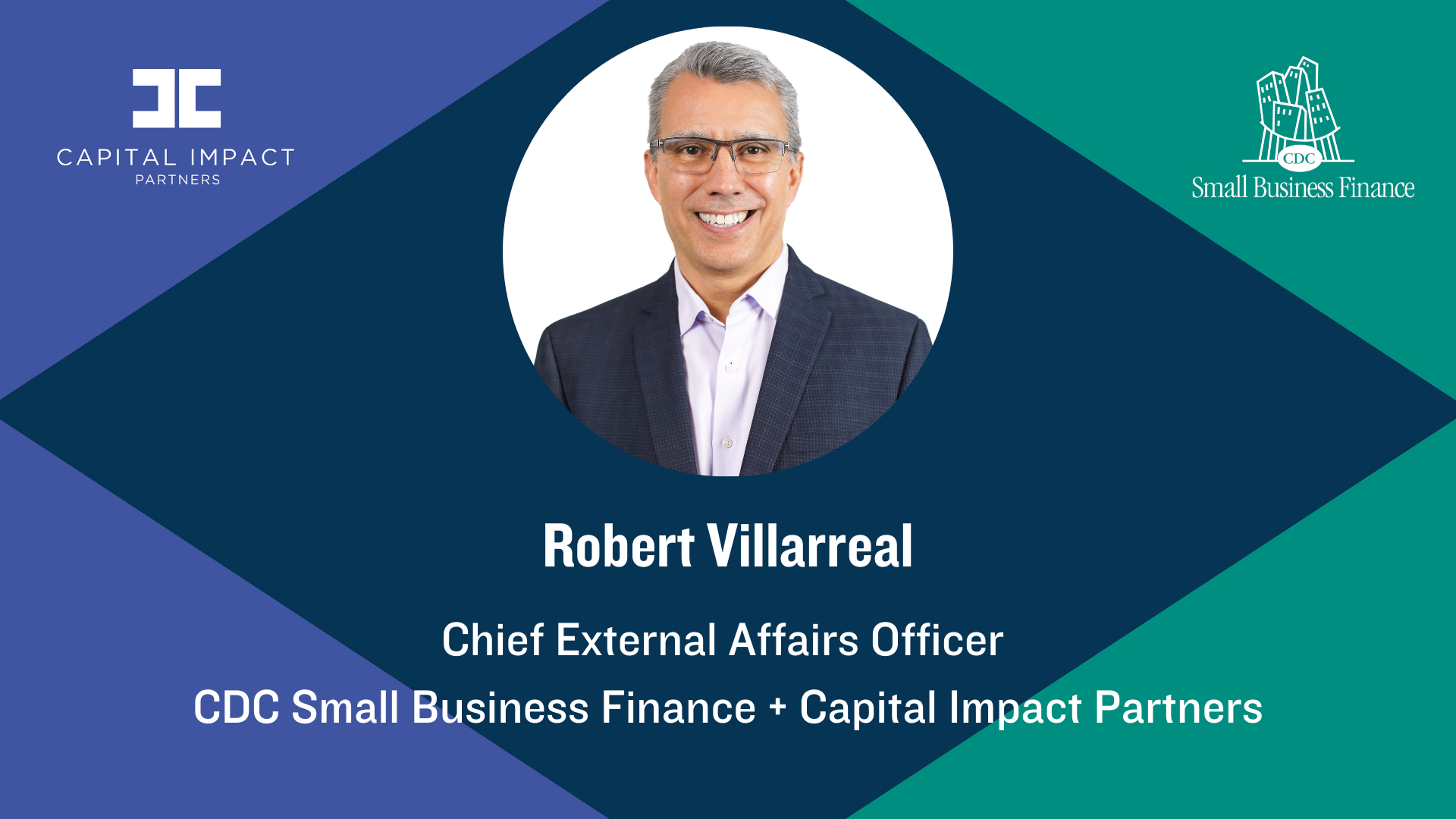
Welcome to our Spotlight series where we highlight members of our new enterprise with Capital Impact Partners.
Earlier this year we announced the formation of our exciting new enterprise that united Capital Impact Partners and CDC Small Business Finance under a single strategy and leadership team.
We believe that in order to ensure that traditional and mainstream financial systems are equitably serving Black, Hispanic, and Indigenous communities to drive solutions that support economic mobility and wealth creation, we must think differently. This series is designed to introduce you to the many people who are working hard to drive change and create a powerful new voice for communities and small businesses.
This Spotlight is on Robert Villarreal. Robert is our Chief External Affairs Officer.
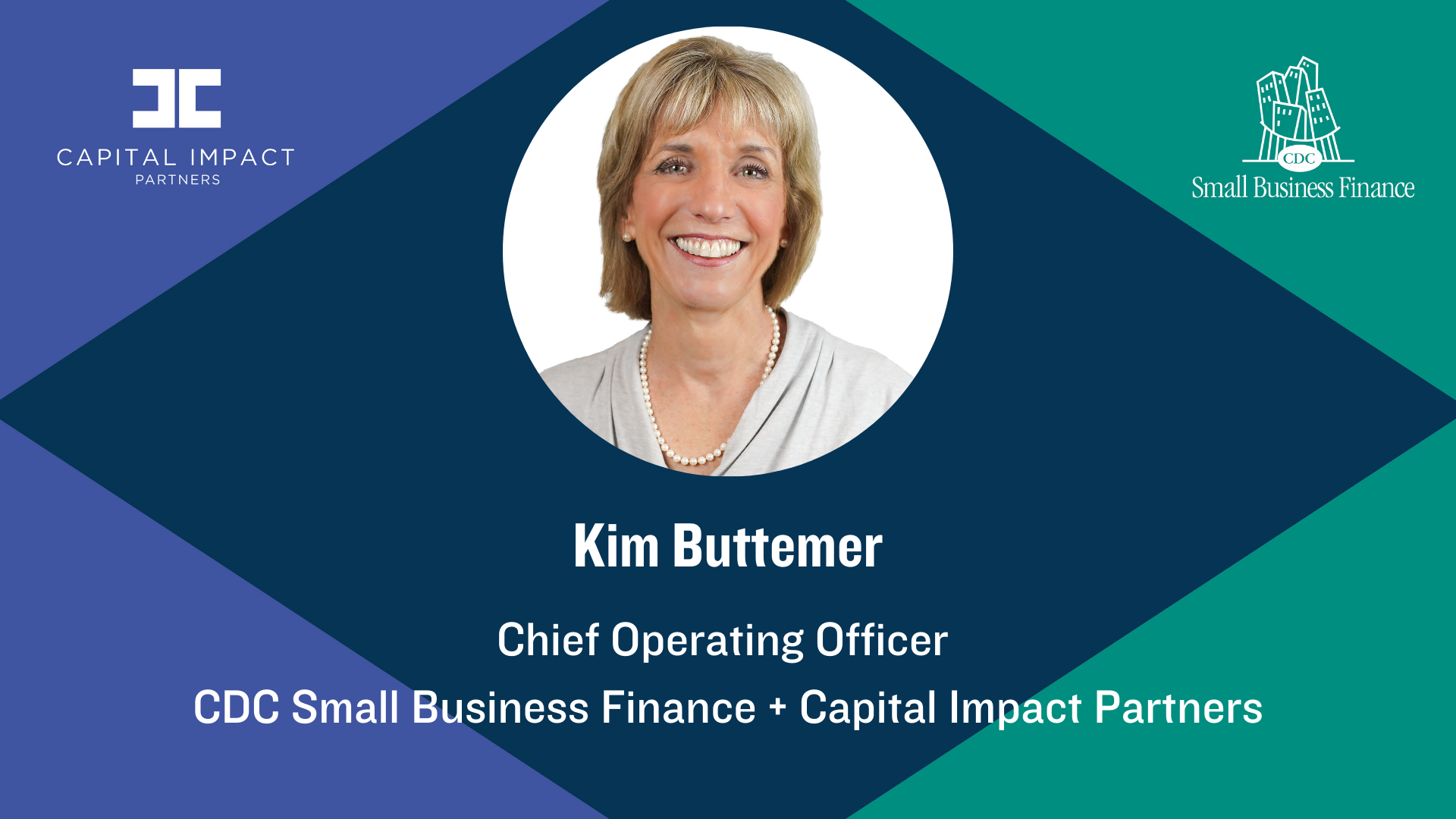
Welcome to our Spotlight series where we highlight members of our new enterprise with Capital Impact Partners.
Earlier this year we announced the formation of our exciting new enterprise that united Capital Impact Partners and CDC Small Business Finance under a single strategy and leadership team.
We believe that in order to ensure that traditional and mainstream financial systems are equitably serving Black, Hispanic, and Indigenous communities to drive solutions that support economic mobility and wealth creation, we must think differently. This series is designed to introduce you to the many people who are working hard to drive change and create a powerful new voice for communities and small businesses.
You can watch all of the interviews in our series here.
In this Spotlight, meet Kim Buttemer, our Chief Operating Officer.
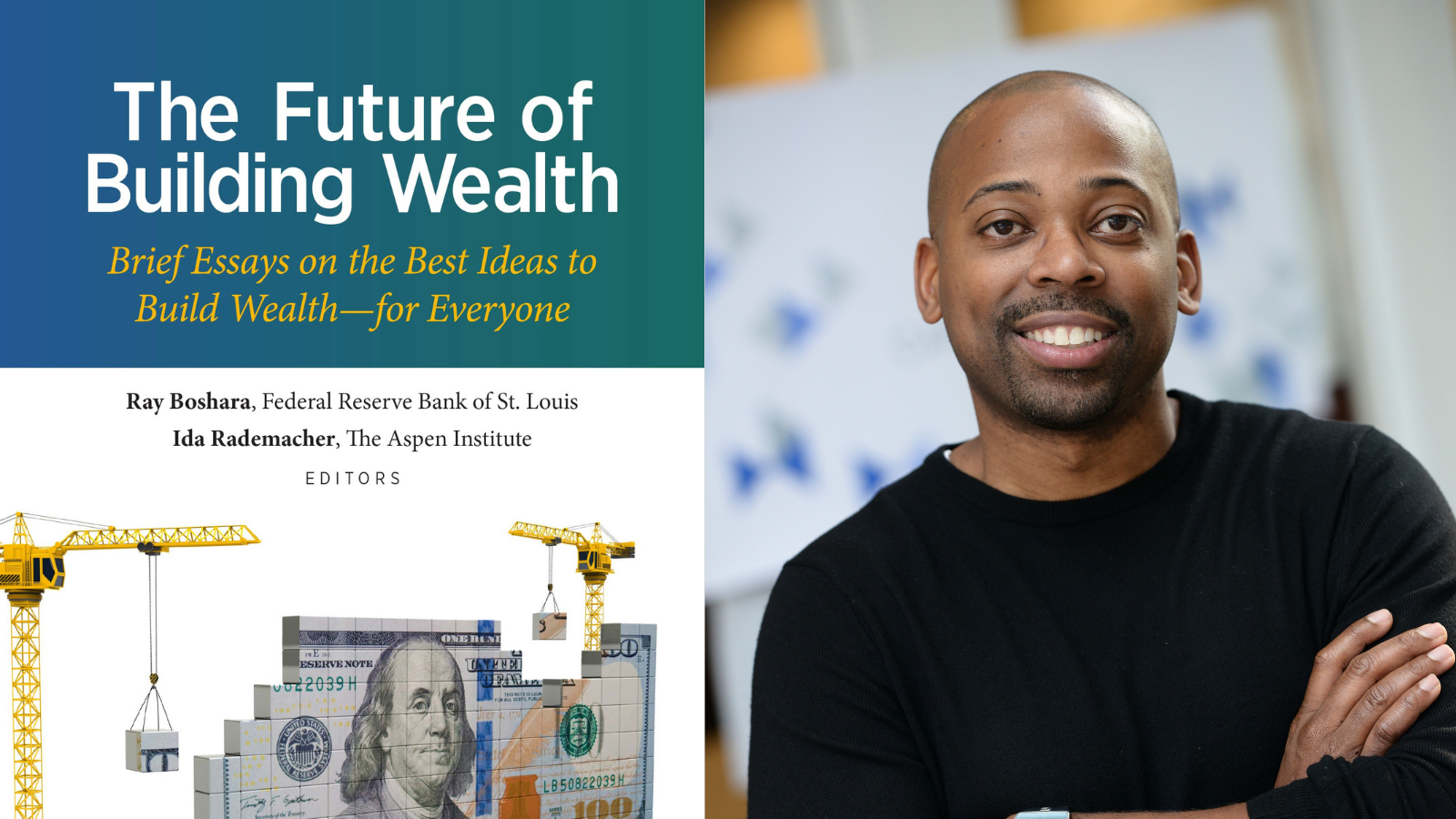
There was considerable evidence, even before the COVID-19 pandemic began, that the United States was marking levels of income and wealth inequality unseen for a century, all during the longest economic expansion in modern history. The stark economic inequalities that individuals and families in our nation are experiencing have been exposed and exacerbated by the pandemic.

The persistence and depth of income and wealth inequality have prompted serious national reflection on the fairness and sustainability of our current policies and systems.
Our President and CEO Ellis Carr joined with other leaders to contribute a chapter to “The Future of Building Wealth: Brief Essays on the Best Ideas to Build Wealth—for Everyone,” a new and important book discussing promising and best practices for addressing the widening wealth gaps in our society and building power for underestimated communities.
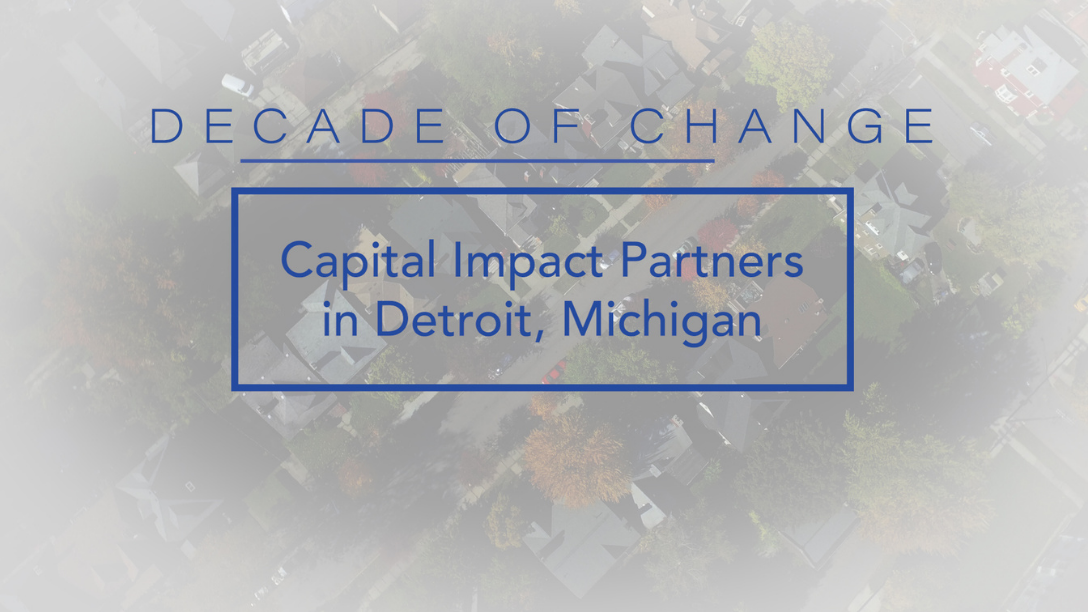
By Ellis Carr, President and CEO of Capital Impact Partners and CDC Small Business Finance
Ten years ago, Capital Impact Partners received an invitation from the Kresge Foundation to join in an effort to support Detroit as the city was reeling in the turbulence of the great recession. It was a seminal moment in our organization’s history, resulting in key shifts to our strategy and how we thought about investing – not only in buildings – but in communities.
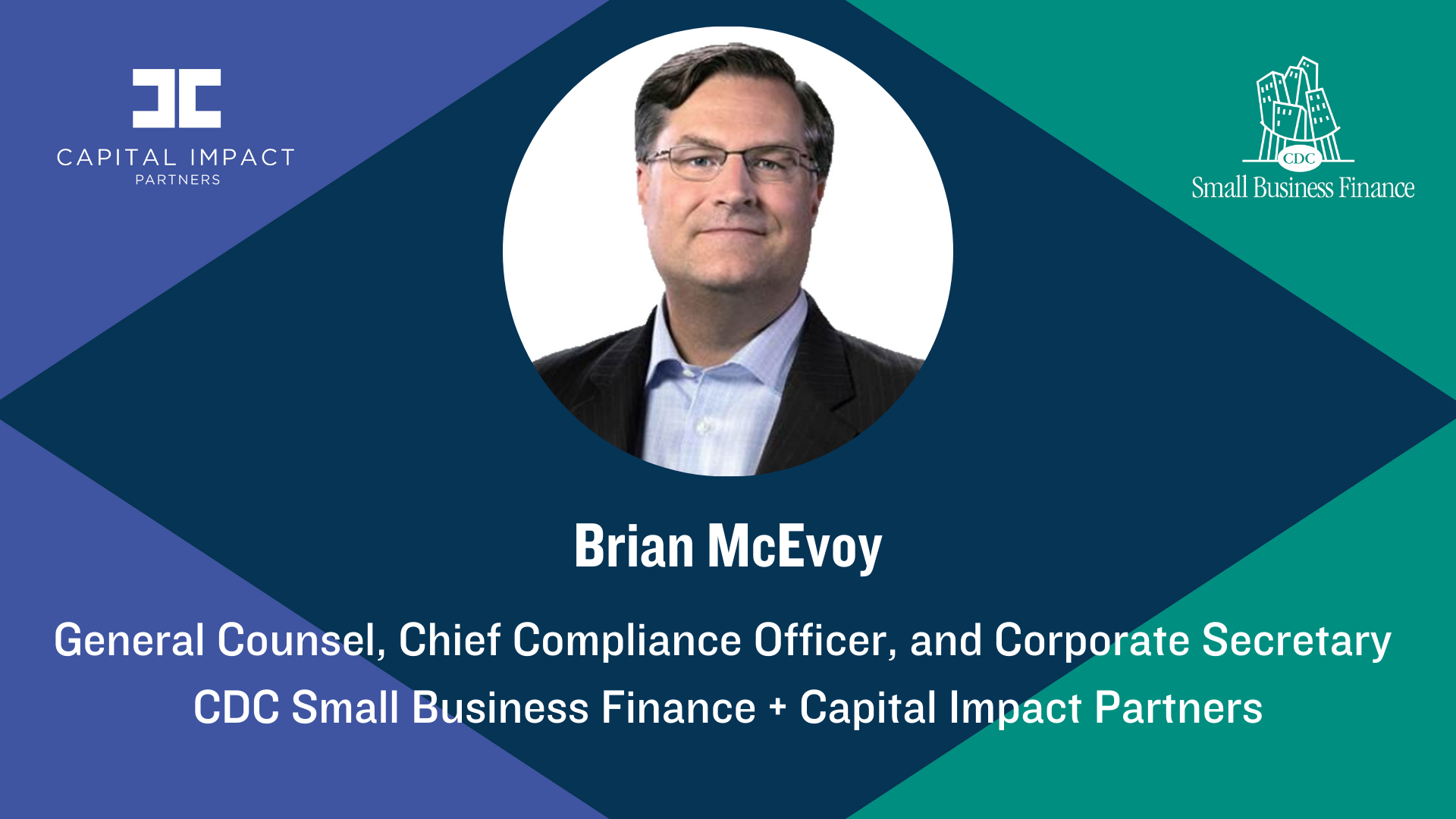
Our Spotlight series is designed to introduce you to the many people in our new enterprise who are working hard to drive change and create a powerful new voice for communities and small businesses.
Earlier this year, we announced the formation of our exciting new enterprise that united Capital Impact Partners and CDC Small Business Finance under a single strategy and leadership team.
In this Spotlight, meet Brian McEvoy, our General Counsel, Chief Compliance Officer, and Corporate Secretary.
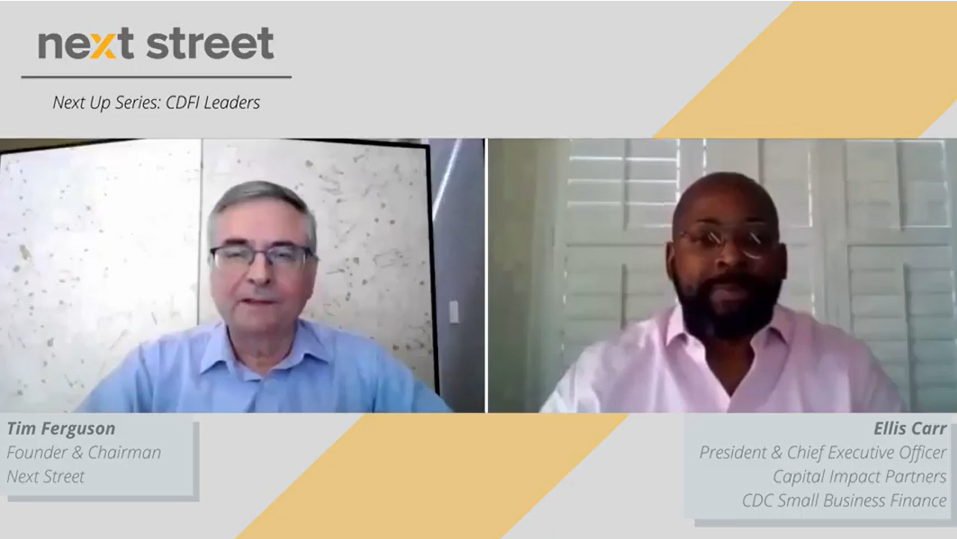
The last 18 months, lived in the context of the COVID-19 pandemic, have opened eyes across our country to the inherent inequities that communities of color and communities living with low incomes experience in all aspects of life. Community Development Financial Institutions (CDFIs) have a particular mandate to address these inequities and implement practices that help communities thrive. What has the racial reckoning of the past several months meant for CDFIs?
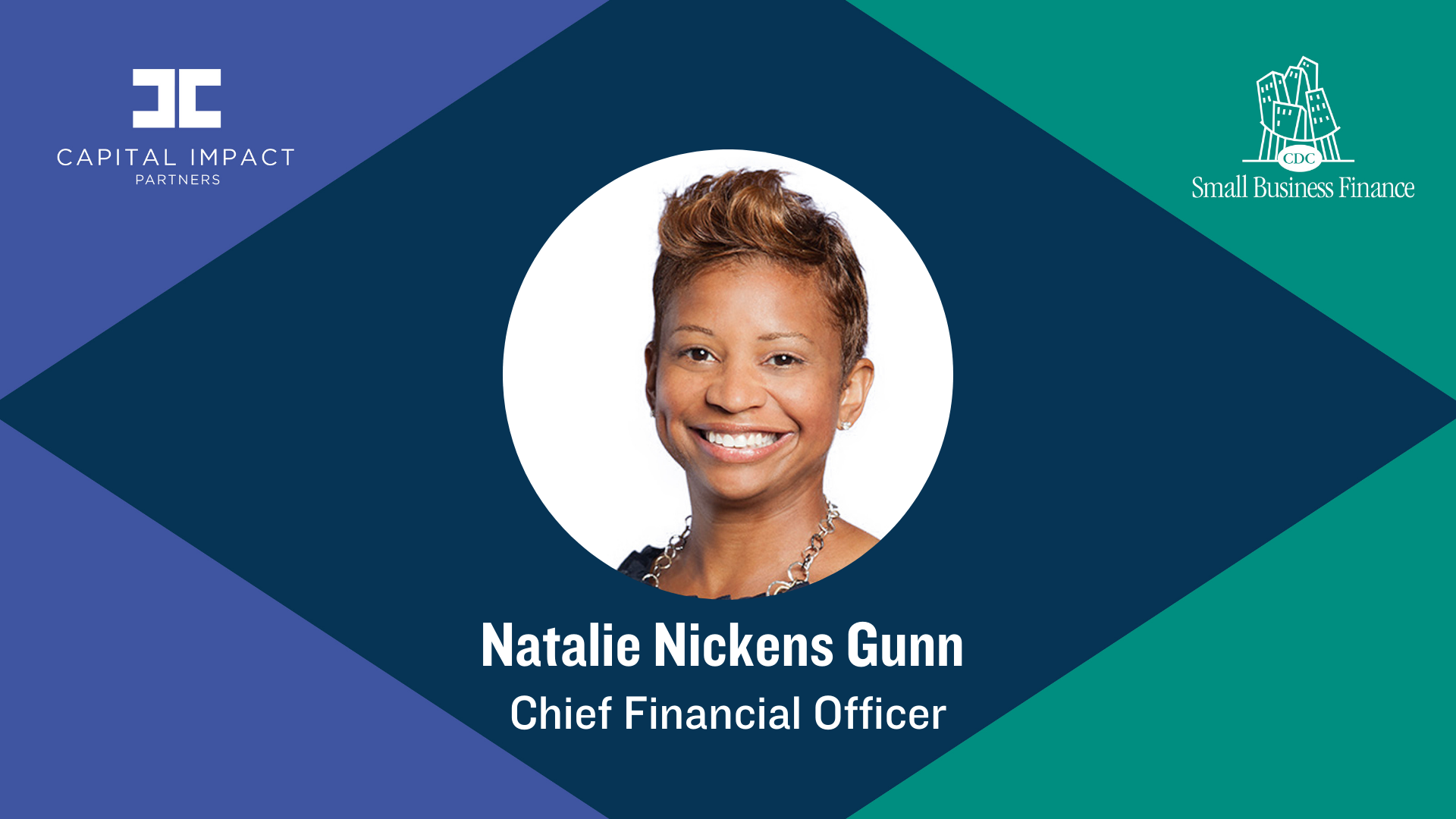
Welcome to our Spotlight series where we highlight members of our new enterprise with CDC Small Business Finance.
Earlier this year we announced the formation of our exciting new enterprise that united Capital Impact Partners and CDC Small Business Finance under a single strategy and leadership team.
We believe that in order to ensure that traditional and mainstream financial systems are equitably serving Black, Hispanic, and Indigenous communities to drive solutions that support economic mobility and wealth creation, we must think differently. This series is designed to introduce you to the many people who are working hard to drive change and create a powerful new voice for communities and small businesses.
Our first Spotlight is on Natalie Nickens Gunn. Natalie is our Chief Financial Officer.
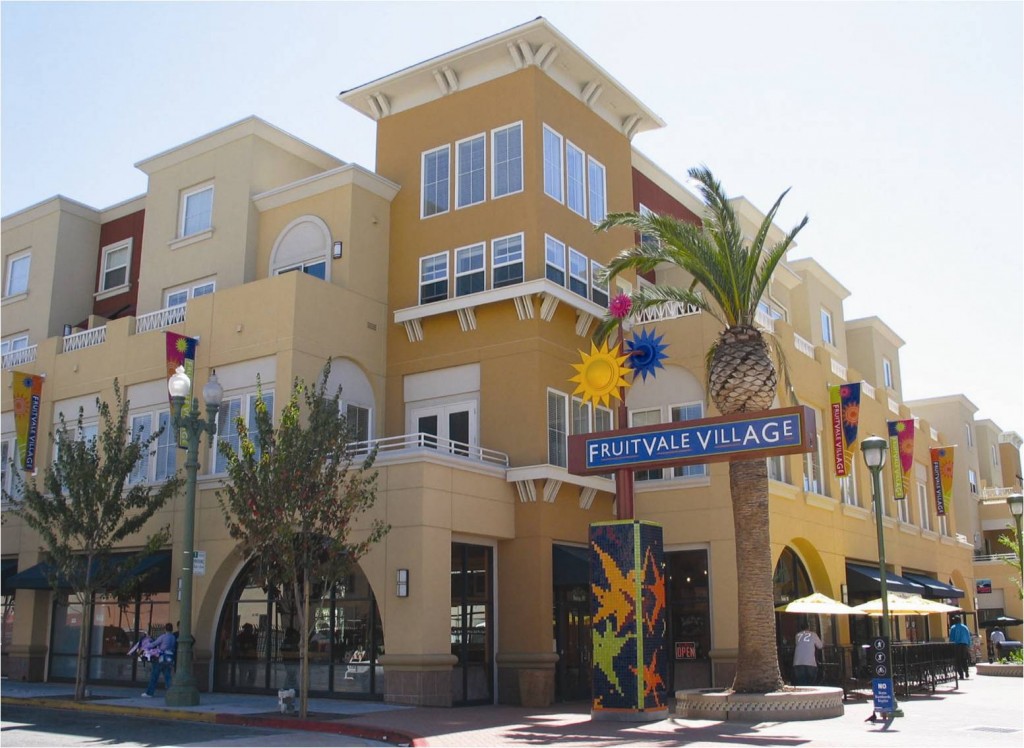
Oakland, Ca. is a vibrant place, a reflection of the multicultural communities within its borders. However, Oakland also experiences poverty, limited social services, and crime, which hold its communities back – particularly communities of color – from achieving their full potential.
Over the past several years, Oakland has seen an influx of residents as the demand for housing in the San Francisco Bay area has driven many people there, on top of the residents who already called the city home.
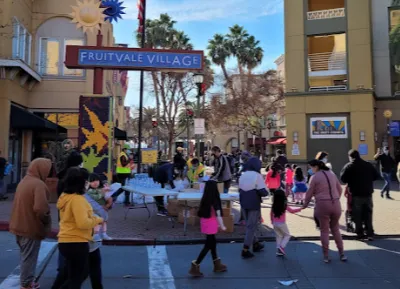
In the early 2000s, Unity Council, based in Oakland, made a bold gamble: create a transit-oriented development that co-located housing, commercial development, and community space in the city’s Fruitvale neighborhood. Why? To expand access and opportunity through employment and transportation, while also creating ownership and small business opportunities to foster wealth creation.
Realizing that such an undertaking could not be done in a vacuum, the Fruitvale Transit Village brought together community members, stakeholders, government officials, and nonprofit and civic organizations to come up with a plan that would enhance local assets and help the neighborhoods build wealth and power.
The result: neighborhood transformation that centered the needs of the residents by providing easy access to social services, education, retail, and more. It is so popular that it quickly became the fourth busiest stop on the Bay Area’s subway system and a generator of wealth and community assets through local businesses and job creation.
Capital Impact Partners is proud to have partnered with Unity Council to support this community-centered development, as well as specific community partners within the development, such as La Clinica de la Raza. This type of collocation investment fits right in with our focus on holistic, community-centered development that community members value, as well as our commitment to financing for racial equity.
In this Q&A, Unity Council’s Director of Development and Communications Dana Kleinhesselink and Director of Real Estate Development Aubra Levine talk about the community will and economic investment that made this innovative project possible, and why they feel this model is invaluable for other communities and developers across the country.
Dana: Fruitvale is really the hub and heart of the Latino community in Oakland. We are the largest Oakland neighborhood with this high concentration of Latinos, from Mexico, Central America, South America. It is a really diverse Latino experience. This community is very heavily immigrant, and that is true for its identity for 50 years or so. So, about 50 percent of the people who live in Fruitvale are Latino. Another 20 percent or so are Asian, and many of those people are immigrants as well, who speak diverse languages, and another 15 percent are African American.
Dana: Fruitvale was a redlined neighborhood. There was a deliberate lack of investment here from the 1950s and 1960s. There were no traditional banks or lending products. Home ownership development was not really a focus here. There was explicit institutional racism that kept a lot of the people of color in generational poverty. And that is systematic, through financial institutions and the school district, as well as city government. Unfortunately, there is crime in the area, which has been the main news story and really has overshadowed the positive things that this community brings.
Dana: In the 1990s, Bay Area Rapid Transit (BART) revealed a plan to create a four-story parking garage right in the middle of what is now the Village. Fruitvale had a bad reputation, there was crime and poverty, and the idea was to make a seamless transition for riders from their vehicle to BART, without interacting with the community. Our neighbors and our founder saw that as really problematic and they started countering the narrative, because our community is a BART rider as well. Our community deserves to have a seamless experience from their home to BART.
So, the community started organizing to say, “okay, why don’t we find a better way, and let’s bring BART in as a partner.” And that is what we did. Now we have a strong relationship, and I think Fruitvale is the fourth busiest station in the system. The amount of revenue generated by riders there, and the amount of revenue generated in the community because BART is so accessible, is really unquantifiable.
Dana: Unity Council was looking for ways to stabilize the Fruitvale neighborhood by owning and controlling real estate. We had done a few real estate development projects already. And the idea – to quote our founder, Arabella Martinez – was, “In order to have wealth in this neighborhood, the community must own and control the assets.” We conducted broad outreach over a long period of time to make sure that what we were proposing was actually consistent with community needs.
We were committed to lifting up local businesses instead of installing a whole bunch of big box stores and national chains; we made sure that community services were a key feature. The Village includes a high school, a library, a health clinic, an early childhood development center, and a senior center. Most of the commercial square footage in the Village is actually community serving. It was never really intended to be a cash cow. It was intended to be a place for the community. Additionally, we know that community ownership leads to stability or can prevent displacement. Unity Council wanted to bring community members to the table and create ways for the community to engage in economic growth through ownership.
In order to have wealth in this neighborhood, the community must own and control the assets.
Arabella Martinez, Unity Council founder
Dana: It’s incredibly important to have a hub of services, and we’ve actually incorporated this into our five-year strategic plan, under a strategy we call “Neighborhood Hub Approach.” In the growing body of research regarding the social determinants of health, there is wide recognition that a broad range of social, economic, and environmental factors shape individual and community health outcomes. The Unity Council defines a “healthy neighborhood hub” as a place where people live healthy lives, feel safe, have a sense of belonging, are able to – and want to – stay in their neighborhood, and where they can access supportive services.
The cluster of services accomplishes two practical functions:
Many of the programs and services at the Fruitvale Transit Village are targeted to low-income immigrant families. It is almost a “one-stop shop” approach for many of these families who may receive child development services from the Head Start facility, health care from La Clinica de la Raza, and legal support from Centro Legal de la Raza, all in one location.
Dana: Fruitvale has a rich history of political activism and organizing and really doing for ourselves what others will not do for us. This community tries to find ways to build capacity within our own people, which has created so many opportunities today. The Fruitvale Transit Village is just an incredible economic engine.
We see many small business owners using community lending products like Kiva loans and nontraditional financial products that help because they have been excluded from traditional financial products. We see a lot of cooperative businesses here as well. We have found that the Fruitvale Transit Village, by being this anchor development, and with Unity Council working with so many partners locally, has really helped to curb displacement in this area.
UCLA launched its Latino Policy & Politics Initiative, and they conducted a 10-year longitudinal study on Fruitvale Transit Village’s effectiveness, in terms of improving educational outcomes, increasing financial wealth for families in the neighborhood, and small business development. It showed that the racial and ethnic makeup in the neighborhood, as well as the age diversity, has really stayed the same over 10 years, while rates of home ownership, rates of small business ownership, and rates of educational attainment have all increased.
Aubra: We did have a bit of difficulty in finding a lender. The feedback that we received was really in that it comprises commercial uses, residential uses, and community facilities. A lot of the lenders that we reached out to were really interested in supporting our mission, but did not understand how to underwrite those three things together. They could not quite wrap their heads around the mixed-use components.
We are very mission-aligned with Community Development Financial Institutions, and we have developed relationships with larger banks as well. There is a lot of support for the work that we do.
It was really wonderful to work with Capital Impact Partners because you got it right away. Capital Impact is local, and understood the project in a very literal way, having stood there. It was really wonderful to be able to find that in a lender.
It was really wonderful to work with Capital Impact Partners because you got it right away. Capital Impact is local, and understood the project in a very literal way, having stood there. It was really wonderful to be able to find that in a lender.
Aubra
Aubra: Capital Impact Partners, from the start, was willing to be collaborative. The commitment to making it work, to saying yes, to finding the “where there’s a will, there’s a way” mentality was crucial to making the transaction happen. The team that we engaged with on a day-to-day basis was really well organized and on top of the underwriting. They made the process feel seamless, especially as they were coordinating with the co-lender on this refinance, LISC.
Additionally, through the Bond Guarantee Program, Capital Impact was able to provide more competitive terms than other lenders that we reached out to.
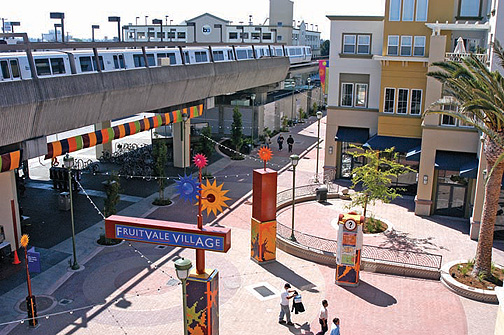
Aubra: Our mission as an organization is to build social equity. It is to reduce poverty and disrupt cycles of poverty that are generational. What we know is that to attack poverty head on, you cannot do it in a piecemeal manner. You cannot just look at education or home ownership or workforce development or career development. You really need to work holistically and weave them together and provide a safety net that is truly integrated.
That multifaceted, easily-accessible, integrated approach to promoting social equity is probably the most labor intensive way to do it, but I think it is the most effective, our neighborhood hub approach.
Equally, it was important that this community was already an existing transit hub. I do not think the Transit Village would have worked as well if we just decided to form a hub around a random bus stop.
Aubra: I think that Unity Council paved the way and made it a little bit easier for community organizations, for funders, to learn from our path and see that this is possible in their community, there is return on this investment, and that is the right thing to do. I definitely think it is possible, and I recommend it.
Dana: Have a bold vision, be collaborative, work with the right partners, and engage community stakeholders for their input to make sure it is consistent with community needs.
Contact us today to start a conversation about how Momentus Capital can support your journey to success.
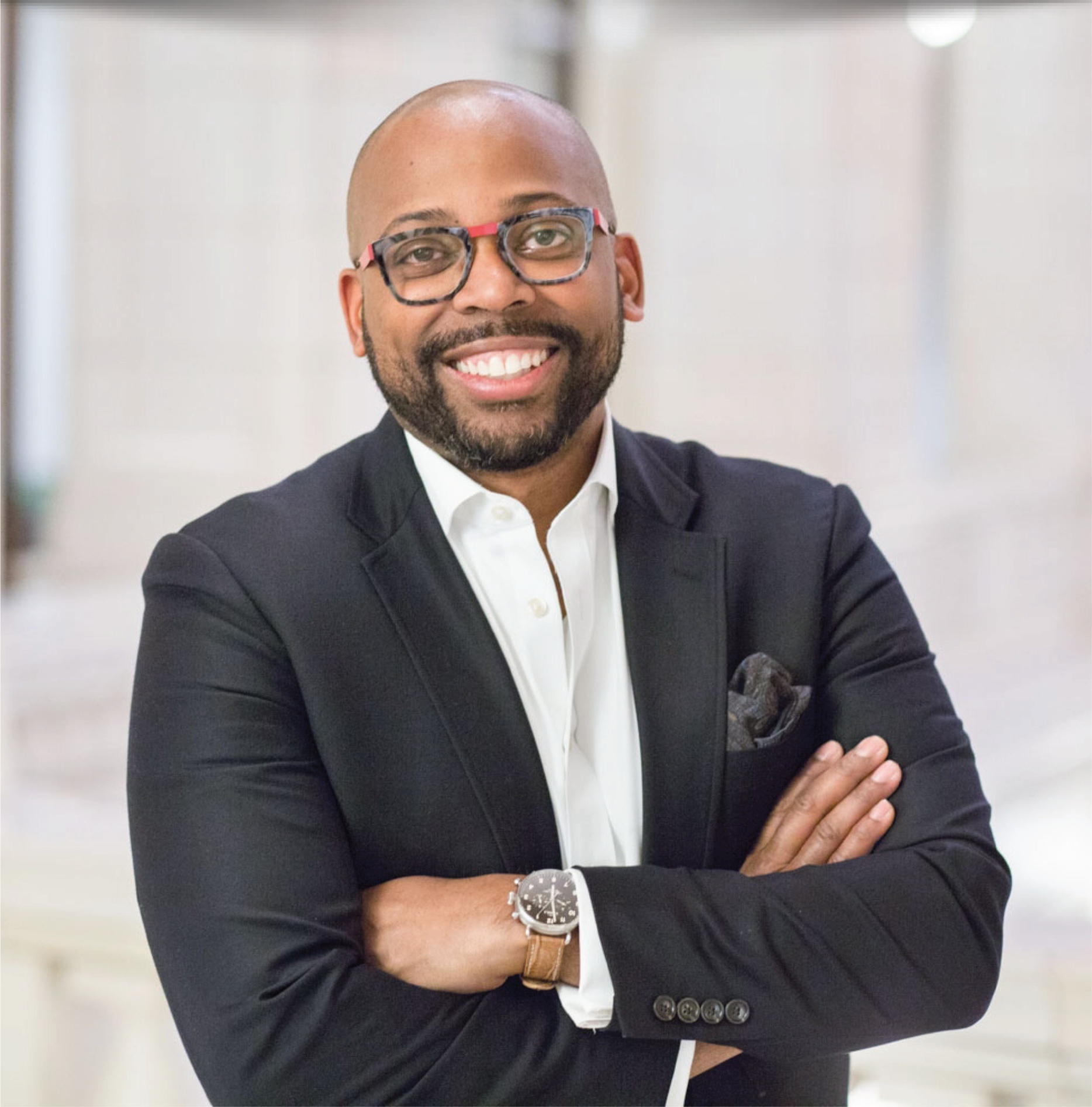
By Ellis Carr, President and CEO of Capital Impact Partners and CDC Small Business Finance
Last year I opened up my Annual Report letter with a reference to COVID-19. While we were still grasping the seriousness of the situation, we could never have realized the extent to which the pandemic would dominate almost every facet of our lives. Now, as vaccines continue to roll out and many begin to “return to normal”, what we feared then has become reality. Communities of color will be grappling with the long-term impacts for months, if not years to come.